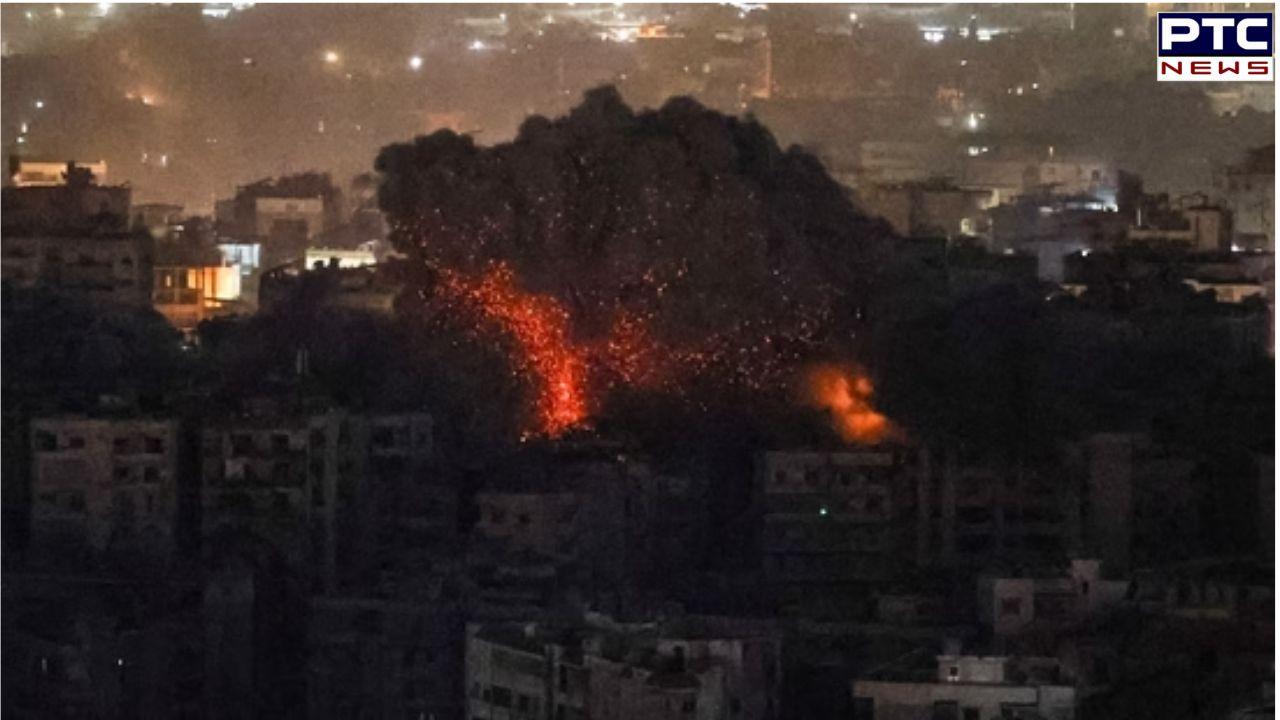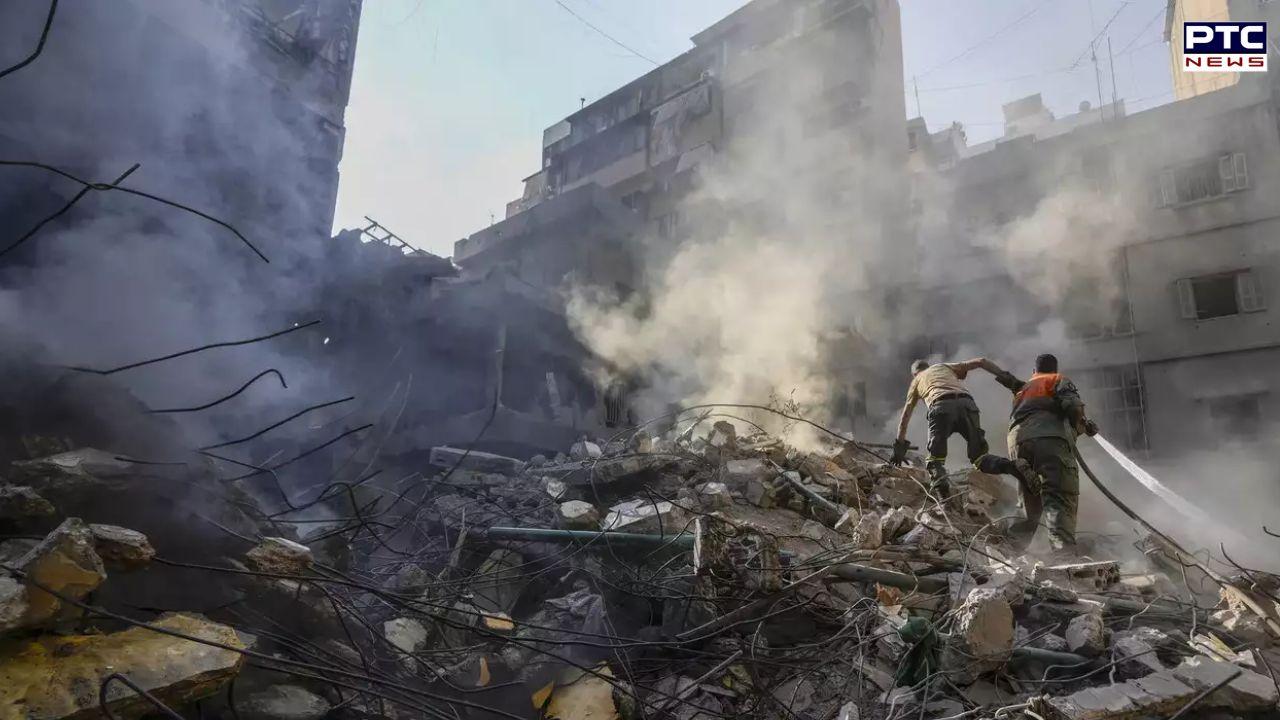

Israel strikes Iran: Over 100 fighter jets hit 20 targets in retaliation for Tehran missile attack
PTC Web Desk: In a significant escalation of tensions in the Middle East, Israel launched a series of targeted airstrikes on Iran early Saturday morning, following an Iranian missile attack on October 1. According to reports from both Israeli and international media, the Israeli Defense Forces (IDF) used over 100 fighter jets, including advanced F-35s, to strike 20 strategic locations in Iran over the course of three hours. The targets included missile factories, military bases, and air defense systems, with one of the most significant strikes occurring near Tehran’s Imam Khomeini International Airport.
The strikes, which began at 2.15 am local time and lasted until 5 am, were Israel’s response to months of continuous attacks, culminating in Iran’s October 1 launch of approximately 200 ballistic missiles at Israel. The IDF announced the operation around 2.30 am., with spokesperson Daniel Hagari stating, "This action was taken in response to the attacks on Israel. Since October 7, 2023, Iran and its Middle Eastern allies have attacked us from seven different fronts. We have the right to defend ourselves, and we will take whatever measures necessary for our protection."

According to The New York Times, Israel’s strikes focused on crippling Iran’s military infrastructure, with significant damage inflicted on missile production facilities and radar installations. Israeli forces also conducted initial strikes on Syrian radar stations before targeting Iranian air defenses, marking a coordinated and widespread military operation.
The response from Tehran was swift. Iranian state media confirmed the strikes and reported explosions in multiple regions, including Tehran, Khuzestan, and Ilam. While Iran’s air defense systems intercepted several incoming missiles, the Iranian authorities downplayed the damage, suggesting minimal impact on critical infrastructure. Iranian TV claimed that many of the attacks were thwarted in the air, limiting the destruction to a few isolated areas.
However, despite these assertions, reports indicated that several military bases near Tehran were significantly impacted. In nearby Karaj, residents reported hearing large explosions.
The United States voiced its support for Israel’s actions, with Sean Savett, spokesperson for the White House National Security Council, characterising the strikes as a legitimate exercise of self-defense. He said the US had been informed in advance of Israel’s plans, though no US personnel or assets were involved in the operation.
The situation has also affected regional airspace, with Israel, Iran, and Iraq closing their airspace in response to the strikes. Additionally, the Syrian state news agency, SANA, reported that air defense systems in Damascus were activated against what it described as "hostile targets," though it remains unclear whether these incidents were directly connected to Israel’s operations in Iran.
In recent weeks, Israel has faced growing hostilities from Iranian-backed groups in the region. Following the October 7 assault by Hamas, which resulted in unprecedented casualties in southern Israel, Israeli forces have ramped up operations against both Hamas in Gaza and Hezbollah in Lebanon, both staunch allies of Iran. The IDF’s recent strikes are seen as part of a broader effort to neutralize Iranian influence across the region.
Israel’s Defense Minister warned earlier this week that any attacks against the state would be met with a "heavy price," underscoring the high stakes of this latest confrontation. As international leaders, including those from the United States, work diplomatically to prevent further escalation, the region remains on high alert, with the potential for further military actions threatening to destabilise the already fragile security landscape.
- With inputs from agencies
